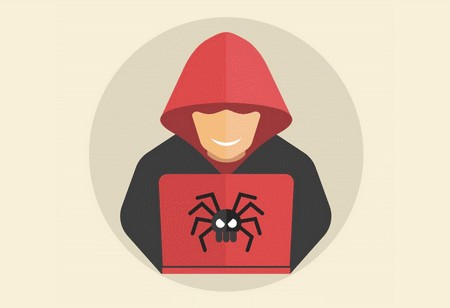
Hacking Facebook Accounts, a Common Hobby for Indian Wannabe Hackers - NordVPN


CEOInsights Team, 0
The number of Google searches related to the key phrase ‘how to hack’ went up in April 2020, so experts from NordVPN looked into what exactly people were trying to hack. The results have shown that half of wannabe Indian hackers were looking to get control of somebody else's Facebook account, while 38 percent wanted to break into somebody else’s Wi-Fi network. India is the global leader in the number of searches related to Facebook account hacking manuals. The country accounts for 26 percent of the global search volumes, which is twice as much as the US.
The researchers analyzed the monthly search terms and found an average of 171,490 Google searches worldwide on how to hack something. “There is more to that. Facebook is the most popular social login to access third-party sites. According to the Dark Web Price Index, that’s why Facebook accounts sell for $75. Once obtained by a cybercriminal, Facebook accounts can open the gates to Instagram, online stores that hold credit card data, and even more,” says Daniel Markuson, Digital Privacy Expert, NordVPN.
What else do people want to break into? When analyzing the volumes of hack-related keywords, NordVPN’s researchers found that Wi-Fi comes second on the most desired list in India. Wi-Fi has always been a target, but the interest increased once people got locked down and
The top three countries where people are looking to take advantage of their neighbor's network include India (23 percent), Indonesia (13 percent), and the United States (8 percent)
had to work or study from their home environment. The top three countries where people are looking to take advantage of their neighbor's network include India (23 percent), Indonesia (13 percent), and the United States (8 percent). The rest of the top five things Indians want to hack include Gmail (10 percent), email (one percent), and Google account (one percent).
How to protect your data?
“People may think they are of no interest to hackers. But they are, and research proves it. Your neighbor may be a hacker trying to break into your Wi-Fi network. Your ex-partner may try to get control of your social media accounts. And, of course, a random black-hat hacker will grab any chance to sell your account on the dark web,” says Daniel Markuson.
Hackers are good at finding their ways, whether they search for tips on Google or on the dark web. But you can make it harder for them by following a simple routine of cyber hygiene.
1. Use unique and complex passwords for different accounts. Once hacked, your credentials can be checked against other services, such as email or online banking. To help you navigate through the sea of passwords, use a password manager that generates secure passwords and stores them in a protected vault. This applies to your Wi-Fi router too.
2. Use two-factor authentication. Just entering a password won’t be enough, hackers would also have to get access to your phone or email.
3. Avoid poorly protected public Wi-Fi. If you have to log in to your online account on a network you can’t fully trust, use a VPN to make your connection private. A VPN encrypts all communications passing between your device and the internet so no outsider can intercept it.